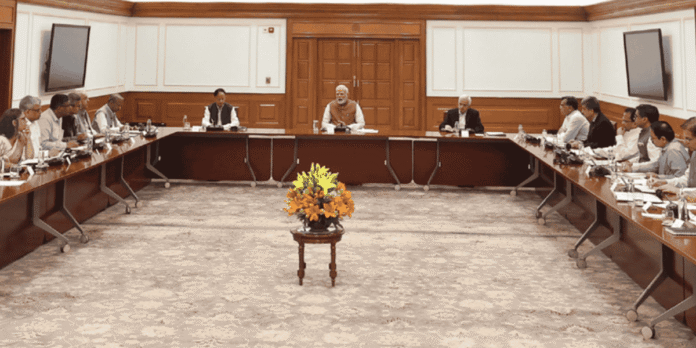NEW DELHI | 10 May: In a significant diplomatic and operational victory for India, Foreign Secretary Vikram Misri announced today that a formal ceasefire agreement has been reached between India and Pakistan. This development follows sustained Indian military operations launched in response to the April 22 terror attack in Kashmir.
Addressing the press in New Delhi, Misri confirmed that the Pakistan Army’s Director General of Military Operations (DGMO) initiated contact with his Indian counterpart at 1535 hours IST. During the exchange, the two senior military officials agreed to halt all ongoing military actions across land, air, and maritime domains with effect from 1700 hours IST.
Misri emphasized that India and Pakistan have agreed to pause military action across all domains and reiterated that instructions have been issued to ensure full implementation of the agreement.
Tensions had escalated after India conducted precision strikes on Wednesday targeting terror launchpads in Pakistan and Pakistan-occupied Kashmir. The strikes were part of Operation Sindoor, India’s calibrated military response to the Pahalgam terror attack, which had clear cross-border linkages.
In the days that followed, Pakistan launched drone and missile attacks targeting Indian military installations and civilian areas along the western border. India responded with force, stating that Pakistan’s multi-domain offensive involving drones, fighter jets, and long-range weapons had been effectively blunted. The Indian government has maintained a posture of strategic restraint paired with decisive action against terror infrastructure.
India’s Calculated Response
Operation Sindoor, launched on May 6, was a targeted military initiative conducted by the Indian Armed Forces in response to the brutal massacre of 26 civilians, including tourists, in Kashmir. The operation involved coordinated air and missile strikes on known terrorist camps and logistics hubs located in Pakistan-occupied Kashmir and adjoining areas.
Government sources have indicated that the success of Operation Sindoor in neutralizing multiple high-value targets with limited collateral damage conveyed a strong message to both adversaries and the international community: India will act with restraint, but without hesitation.
Diplomacy on India’s Terms
While international stakeholders including the United States, Saudi Arabia, and Turkey facilitated backchannel diplomacy, Indian officials stressed that the ceasefire understanding was achieved bilaterally at the DGMO level. This highlights New Delhi’s preference for direct engagement when backed by credible force.
An MEA official stated, “The ceasefire is not a result of compromise but consequence.” The statement underscores both the cost of adventurism and the maturity of India’s crisis management doctrine.
No Broader Dialogue, Clarifies Government
India made it unequivocally clear that the current agreement is limited to cessation of hostilities. “There is no understanding or proposal for dialogue on other issues, at any other forum or location,” a senior MEA official clarified. “This is purely a tactical de-escalation, and any future engagement will depend entirely on Pakistan’s conduct.”
A Message of Resolve
With calm returning to the Line of Control, India’s strategic community views the recent developments as a clear demonstration of the nation’s calibrated assertiveness. Pakistan initiated the call for a ceasefire, and no further concessions were made, allowing India to retain both the moral and strategic high ground.
Operation Sindoor has reaffirmed India’s deterrent posture and ensured that the ceasefire was achieved on New Delhi’s terms — not as a result of external pressure but through decisive strength.
The two DGMOs are scheduled to review the ground situation in a follow-up conversation at 1200 hours IST on May 12.





